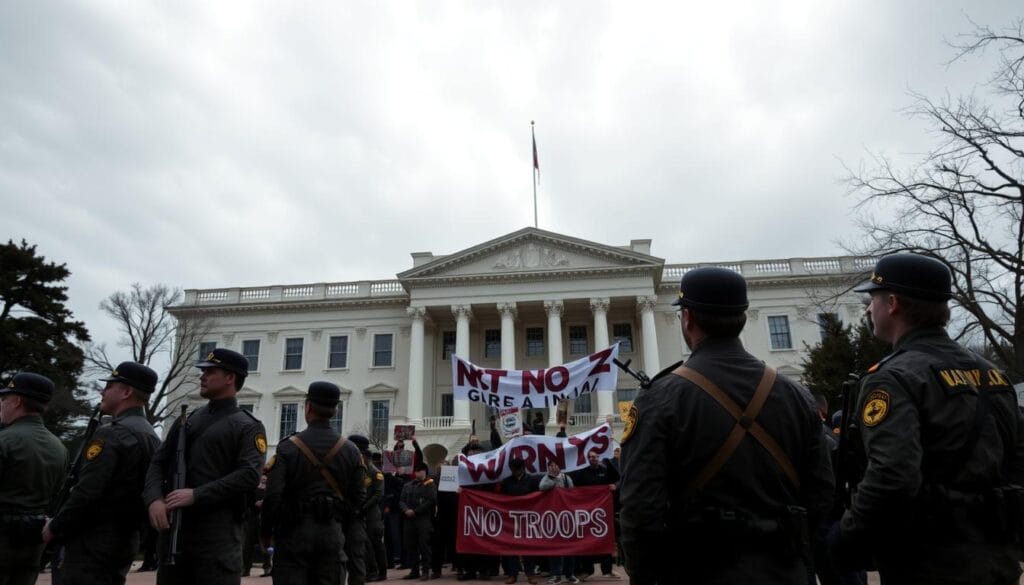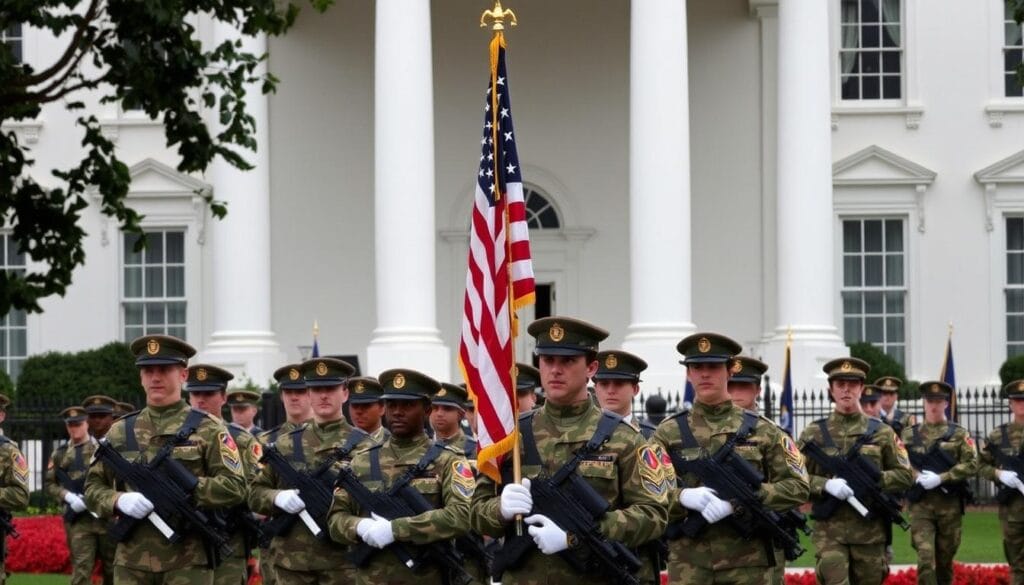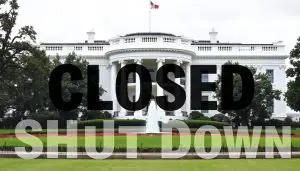Sending National Guard to Oregon: Abuse of Executive Authority?
Explore the controversy over executive authority in the deployment of the National Guard in Oregon and the implications for state governance.

Click to summarize this article.
They woke up to a new test of power. The question—Sending National Guard to Oregon: Abuse of Executive Authority?—now frames a national debate. President Donald Trump’s push to move Guard units across state lines has sparked a rapid legal and political fight. Many see executive authority being misused in Oregon as governors resist, and courts step in.
At issue is the balance between Oregon’s executive power and federal command. Trump’s allies argue it is about public safety. Critics warn that a national guard deployment in Oregon without clear local consent risks breaching the law and custom. Governors Gavin Newsom and JB Pritzker say the political decision in Oregon echoes a broader effort to centralize control over domestic deployments.
Reports of California Guard troops bound for Portland drew swift pushback, with one news account noting court challenges and shifting orders. Civil liberties groups criticized the legal basis and warned about the Posse Comitatus line, citing Title 10 deployments that restrict direct law enforcement by troops. The clash merges into a larger debate over the separation of powers and the military’s role within U.S. borders.
Advisers praised firm action on crime and immigration. At the same time, legal scholars, including Alex Reinert and William Banks, argue that courts will sift through the Insurrection Act claims and test the limits of presidential reach. As rulings pile up and appeals loom, the focus remains on whether sending the National Guard to Oregon constitutes an Abuse of executive authority. Narrative holds—and how fast it moves from courthouse to street.
The stakes extend beyond Oregon. Battles over federal immunity and executive privilege, echoed in coverage of high court skirmishes and related political storms, color the moment, from arguments over presidential limits to headlines on legal exposure, as seen in recent reporting on the Supreme Court and Trump immunity and the White House’s own political turbulence surrounding President Joe Biden’s family. Each story sharpens the focus on accountability—and on who decides when troops stand guard on American streets.
Key Takeaways
- Debate Rages Over Sending the National Guard to Oregon: Is It an Abuse of Executive Authority? and whether federal power overrides state control.
- Legal friction arises from Title 10, the Posse Comitatus Act, and the possible limits of the Insurrection Act.
- Governors in blue states oppose cross-border troop moves as an abuse of executive authority in Oregon and beyond.
- Court rulings and injunctions shape the Oregon executive power decision in real time.
- Public safety claims face scrutiny as a national guard deployment in Oregon raises civil liberties concerns.
- The political decision in Oregon serves as a broader test of federalism and the separation of powers.
Context and Controversy Over National Guard Deployment in Oregon
The debate over the National Guard in Oregon grew as leaders clashed. They argued over control, legality, and appearance. This raised questions about federalism and public safety, and if the military could be used too much.
National Guard deployment in Oregon: what sparked the legal and political battle
President Donald Trump wanted to move California National Guard soldiers to Portland. He also discussed doing the same in other Democratic-led areas. Supporters argued that it was necessary to protect federal property. Critics said it had too much power and could break the law in Oregon.
Then, a federal judge in Oregon stopped the move. This was a big moment, as seen in a story about a federal court block on Guard. The ruling made people wonder how far the president can go in deploying troops without a governor’s approval.
Governor orders National Guard to Oregon vs. federal control: who decides
Typically, governors control their National Guard unless the federal government assumes control. The question was if the president could move troops from another state. When a governor requests the National Guard, they must follow strict rules regarding their assistance with law and order.
Experts said the Insurrection Act is very specific and used rarely. It’s for enforcing civil rights or when things really break down. This fight was about who gets to control the Guard: the state or the federal government.
Blue state pushback: lawsuits from Oregon, Illinois, and California
Blue states, such as Oregon, Illinois, and California, pushed back against the federal moves. Their governors, Gavin Newsom and JB Pritzker, spoke out against the plans. They said they supported going to court to check the president’s power.
As more lawsuits were filed, the debate spread to other parts of the government. Stories about a fight between the president and the Supreme Court were also shared. This showed the tension and legal challenges in a big legal battle.
State military presence in Oregon and the symbolism of rifle-wielding troops on city streets
Seeing troops with rifles on city streets upset many. Some saw it as a sign of control and safety. Others felt it was too much and could lead to more problems and mistrust.
Law experts said that even a small deployment can blur the lines between military and police roles. This is why the debate keeps coming back to the same question: Is public safety worth the legal and social costs?
| Key Element | What Happened | Legal Lens | Implications for Oregon |
|---|---|---|---|
| Cross‑state Guard shift | Plan to move California troops to Portland | Tests the federal power to redeploy without consent | Potential constitutional violation in Oregon if limits breached |
| Governor control vs. federalization | Governors manage the Guard unless lawfully federalized | Posse Comitatus and Insurrection Act shape boundaries | Determines who decides when the governor orders National Guard to Oregon |
| Court intervention | Federal judge blocks the Portland redeployment | Judicial review of executive authority | Blue state pushback gains traction through injunctions |
| Public imagery | Rifle‑bearing troops in urban areas | Concerns over militarized policing optics | Heightens scrutiny of state military presence in Oregon |
Sending National Guard to Oregon: Abuse of Executive Authority?
There’s a big debate about sending the National Guard to Oregon. Legal experts are examining the extent of the president’s power. They say the Posse Comitatus Act and the Insurrection Act set limits on this power.
Some argue that the president needs to protect federal property. They say local leaders have failed. However, others argue that using the Guard for local policing could be an abuse of power.
Supporters say the Guard must protect federal property. However, critics argue that this could be an overstep. They point out that the Guard can’t enforce local laws or stop traffic.
Governor Tina Kotek and Portland Mayor Ted Wheeler disagree. They say the city can handle public safety. They point to a decline in violent crime and urge caution.
The White House sees it as an emergency. This creates a big political issue in Oregon. It’s about the extent of the federal government’s power over states.
Legal experts, such as Elizabeth Goitein and William Banks, are worried. They say deploying troops across state lines is a big deal. They think courts might get involved to check if the president followed the rules.
The administration says it’s just about keeping people safe. But experts say there are limits to what the Guard can do. This debate is not just about Oregon. It’s about how the president can use the Guard in other cities too.
Key considerations now include:
- Whether statutory triggers were met for federal direction of Guard forces.
- How much weight courts give to claims of imminent threats versus local crime trends.
- What precedents might future presidents cite from this political decision in Oregon?
Conclusion
The national guard deployment in Oregon is a test of power and restraint. It raises questions about the White House’s ability to direct troops across state lines. Governors might object, leading to a constitutional violation in Oregon.
Judges, scholars, and city leaders focus on the Posse Comitatus Act and the Insurrection Act. They examine the limits of using Guard units for routine policing. The Oregon National Guard controversy highlights the clash between emergency rhetoric and the principles of law and federalism.
A Trump-appointed judge in Portland issued a temporary restraining order. This shows that federalizing troops lacks solid legal grounds. The federal court ruling emphasizes the judiciary’s role in checking official claims of authority.
Experts like William Banks and Elizabeth Goitein say deploying soldiers in cities is not effective. It raises concerns about the misuse of executive authority in Oregon.
Governors from California and Illinois have filed lawsuits against the deployment of out-of-state units. They argue that such actions are an overreach and deepen the Oregon National Guard controversy. Leaders’ words can escalate tensions rather than calm them.
This debate is not just about policy; it is also about values. It’s also about the role of state military presence in Oregon. It questions the line between civil order and the army force.
The outcome will shape the future of more than one city. Courts will determine who decides on Guard deployments and the limits of domestic security power. They will determine if current plans are constitutional or not.
Until then, the best approach is to use measured responses and transparent processes. Respect for state authority is key to preventing misuse of executive power in Oregon. This maintains public trust.
FAQ
Why is sending the National Guard to Oregon being called an abuse of executive authority?
Critics argue that the plan exceeds the Constitution and laws that limit military roles in the U.S. They point to the Posse Comitatus Act and the Insurrection Act’s narrow triggers. Experts like Elizabeth Goitein and William Banks say deploying California Guard troops to Oregon is illegal. They claim it bypasses normal Pentagon processes, raising concerns about the separation of powers.
What sparked the national guard deployment in Oregon controversy?
The controversy began when President Donald Trump sought to deploy California National Guard members to Oregon. He also directed Texas Guardsmen to Illinois. Trump said it was to protect federal property and personnel. However, blue state governors disagreed, arguing that it overstepped and could lead to the use of troops for local law enforcement, which is restricted by federal law.
Governor orders National Guard to Oregon in response to federal control: Who decides?
Governors usually control their state Guard unless the president federalizes it. In Washington, D.C., the president has direct command. Trump hinted at using the Insurrection Act. Legal scholars say this law has specific conditions. Courts will decide if federalizing the Guard here meets those limits.
Does the Posse Comitatus Act prohibit the use of Guard troops for policing in Oregon?
It generally bars the military from domestic law enforcement. When Guard units are under state control, they can support civil missions in accordance with state law. Once federalized, they are bound by Posse Comitatus unless Congress authorizes exceptions, such as the Insurrection Act. Banks notes that Guard troops cannot enforce local ordinances or perform routine policing.
What is the Insurrection Act, and is it relevant to Oregon?
The Insurrection Act allows a president to deploy forces if states are unable to enforce federal law or quell an insurrection. Trump indicated he might use it to protect federal assets. Legal experts say courts will test whether that rationale meets the statute’s thresholds, which historically covered civil rights enforcement, not general urban crime.
How does this compare to past federalizations, such as President John F. Kennedy’s in 1963?
Kennedy used the Guard to enforce federal civil rights orders in Alabama when state officials refused to comply with the law. Today’s dispute focuses on defending federal property and claims of city disorder. Scholars argue that is a weaker statutory basis than stopping defiance of federal court mandates.
What are the main lawsuits in the Oregon National Guard controversy?
Oregon, Illinois, and California filed suits challenging the deployments. A Trump-appointed judge blocked the Portland deployment, prompting criticism from Stephen Miller on X. The courts will review constitutional questions and determine whether the orders violate Guard statutes, the Posse Comitatus Act, or the Insurrection Act.
Did the White House bypass standard Pentagon processes?
Current and former officials say decisions were made at the highest levels, with pressure on the Pentagon to defer details to the White House. Pentagon public affairs struggled to confirm specifics, while governors Gavin Newsom and JB Pritzker publicly addressed troop movements, fueling concerns about transparency.
What do supporters of the deployments argue?
The White House states that the goal is to assist local leaders in securing cities and protecting federal personnel. Press secretary Karoline Leavitt frames the move as a public safety measure, citing threats to federal buildings and employees in urban areas.
Why do experts call the California-to-Oregon redeployment a “clear violation of the law”?
Elizabeth Goitein argues the effort sidesteps a judge’s order and treats U.S. cities as training grounds, which miscasts the military’s mission. She and others say that cross-state redeployment without proper statutory grounding breaches Guard laws and risks normalizing the domestic military presence.
Are rifle-wielding troops on city streets mainly symbolic?
William Banks says that Guard forces cannot perform core police functions, such as enforcing local laws or directing traffic, when federalized. He sees the deployments as more symbolic than practical, with strong optics but limited law enforcement value.
Can courts prevent the president from deploying the National Guard to Oregon?
Yes. Judicial review applies to presidential orders that rely on statutes. Stephen Miller’s claim that courts cannot restrict the Commander-in-Chief conflicts with precedent. Alex Reinert warns that ignoring adverse rulings would raise serious risks of authoritarian overreach.
Is there a constitutional violation in Oregon if these troops deploy?
That is the core legal question. Courts will weigh the principles of federalism, separation of powers, and statutory limits on the domestic use of military force. If judges find the orders exceed the Insurrection Act or violate Guard laws, the deployments could be deemed unconstitutional.
How does “invasion from within” rhetoric affect the legal case?
Rhetoric does not expand statutory authority. Labeling cities as an “invasion” may influence public debate, but courts will focus on the legal triggers under the Insurrection Act and the constraints imposed by Posse Comitatus, rather than the political framing.
What happens if the administration defies court orders?
Defiance would test the judiciary’s role as a democratic backstop. Banks and Reinert warn it could trigger a constitutional crisis, pitting executive claims against court authority and state control of the Guard.
Are deployments to Los Angeles, Washington, D.C., and Portland treated the same?
No. The president directly commands the D.C. Guard. In states like California and Oregon, governors control Guard units unless they are federalized under lawful authority. That legal distinction is central to the current litigation.
What are the implications for executive authority misuse in Oregon?
The outcome could set precedents for how far presidents can go in domestic security, when they may move Guard units across state lines, and how courts police executive power. It will define the bounds between legitimate defense of federal property and executive overreach.
Does federal property protection alone justify these deployments?
Protecting federal assets can justify limited federal action, but it does not automatically authorize federalizing the Guard or broad policing roles. Courts will examine whether targeted federal protection could work without sending state troops into other states.
How are governors responding to the political decision in Oregon?
Governors Gavin Newsom and JB Pritzker publicly pushed back, highlighting state authority over the Guard and joining lawsuits against the federal government. Oregon officials aligned with litigation to halt deployments, stressing public safety can be addressed without federalized troops.
What will courts likely clarify about state military presence in Oregon?
Judges are poised to define when the president may federalize state forces, whether cross-state National Guard use is permissible, and how Posse Comitatus and the Insurrection Act limit domestic military roles. Their rulings will guide future disputes over similar deployments.
Is sending the National Guard to Oregon: abuse of executive authority?
That is what the lawsuits aim to answer. Given the statutes and constitutional principles at stake, many experts believe that the current orders overstep their bounds. Supporters say the moves protect federal property. The courts will decide which view prevails.






